Legacy locomotive shop keeps rolling

Since 1947, when Virgil Uhrich opened Uhrich Locomotive Works, the shop has fabricated, welded and machine-built train parts. There is also a foundry used for metal castings.
“It’s not just rail locomotives or cars, we’re also a job shop. We make parts that nobody makes anymore,” said Marlin Uhrich, Virgil Uhrich’s son. He took over the business in 1990.
“Somebody always wants something here, and that’s the way it goes,” Uhrich said.
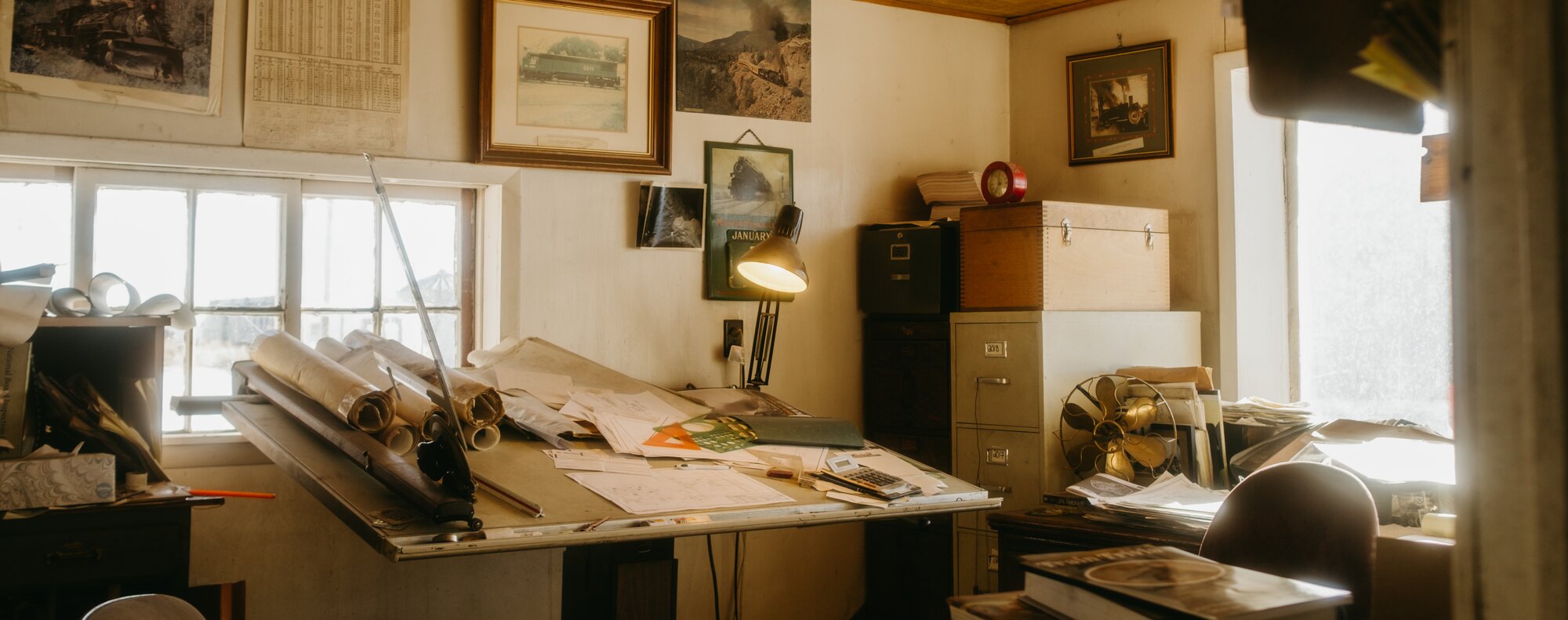
Uhrich's office at the shop.
Photo: Peter Vo, Rocky Mountain PBS
Virgil Uhrich developed a talent for metalworks working on the railroads during the second World War. He was kept out of combat because he was deemed unfit to serve in the United States military.
Using his experience with the railway companies and the connections he made during wartime, Virgil Uhrich built the engine for his first steam locomotive in 1948 and Uhrich Locomotive Works was born.
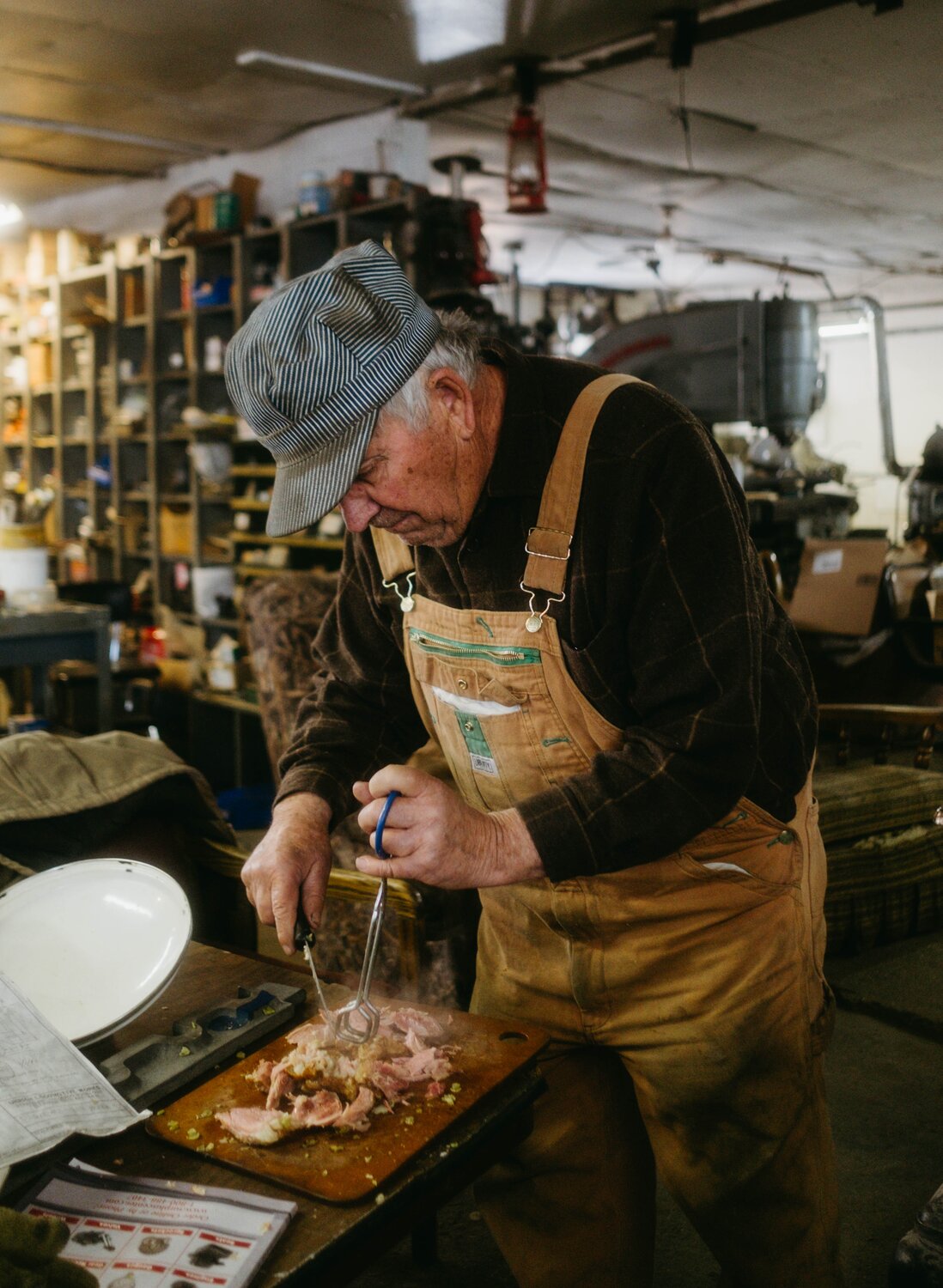
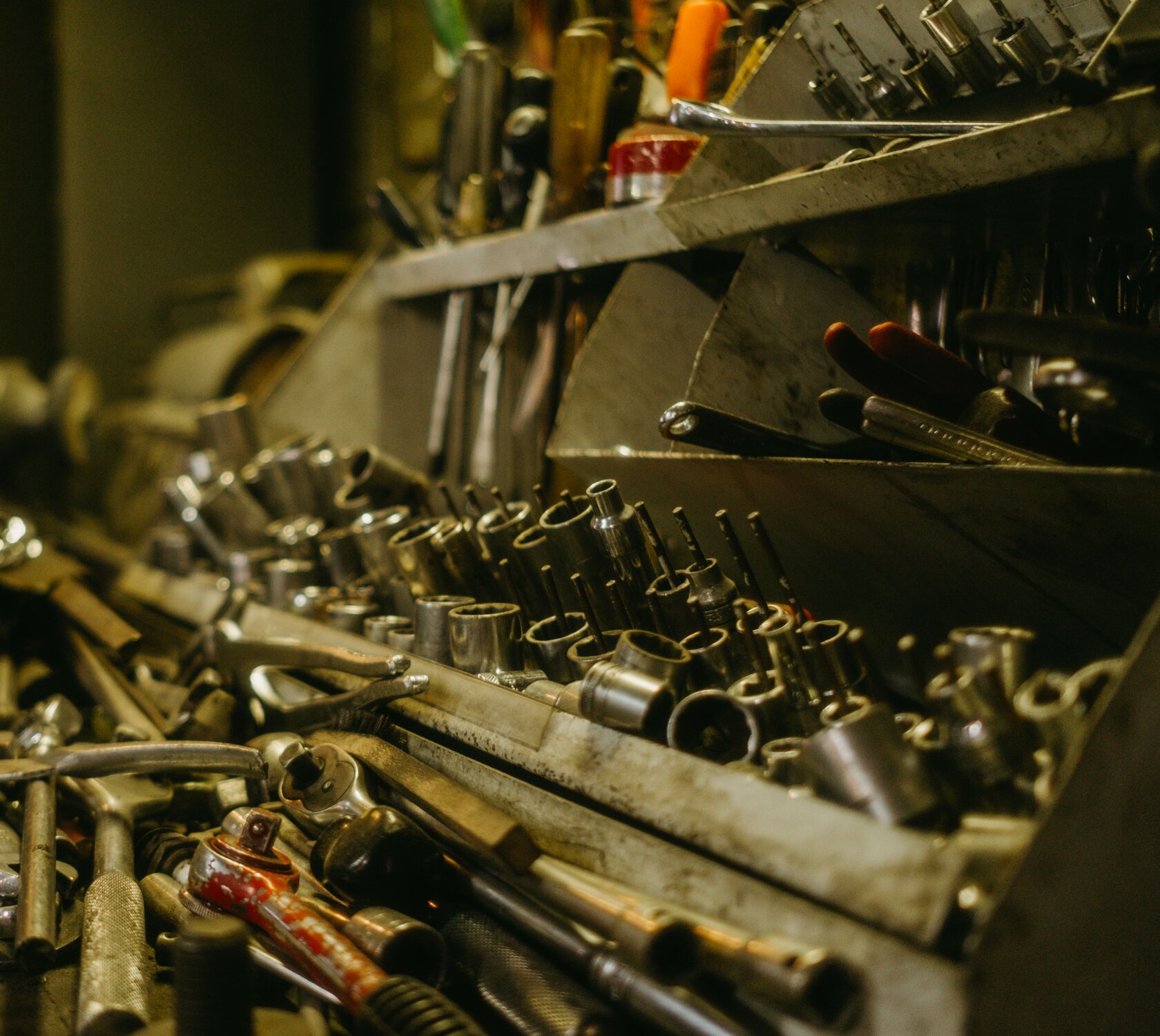
Marlin Uhrich, 84, started working at the shop with his dad, Virgil, in 1967.
“He would take me to work with him and so I was making molds when I was seven-years-old out in the foundry,” Marlin Uhrich said.
From a young age, Marlin and his father worked together on building locomotives and making parts for amusement parks.
Around Colorado, the workshop built miniatures for the Tiny Town miniature village and parts for rides at the historic Lakeside Amusement Park. But they've done work for places as far afield as Tennessee and Connecticut.
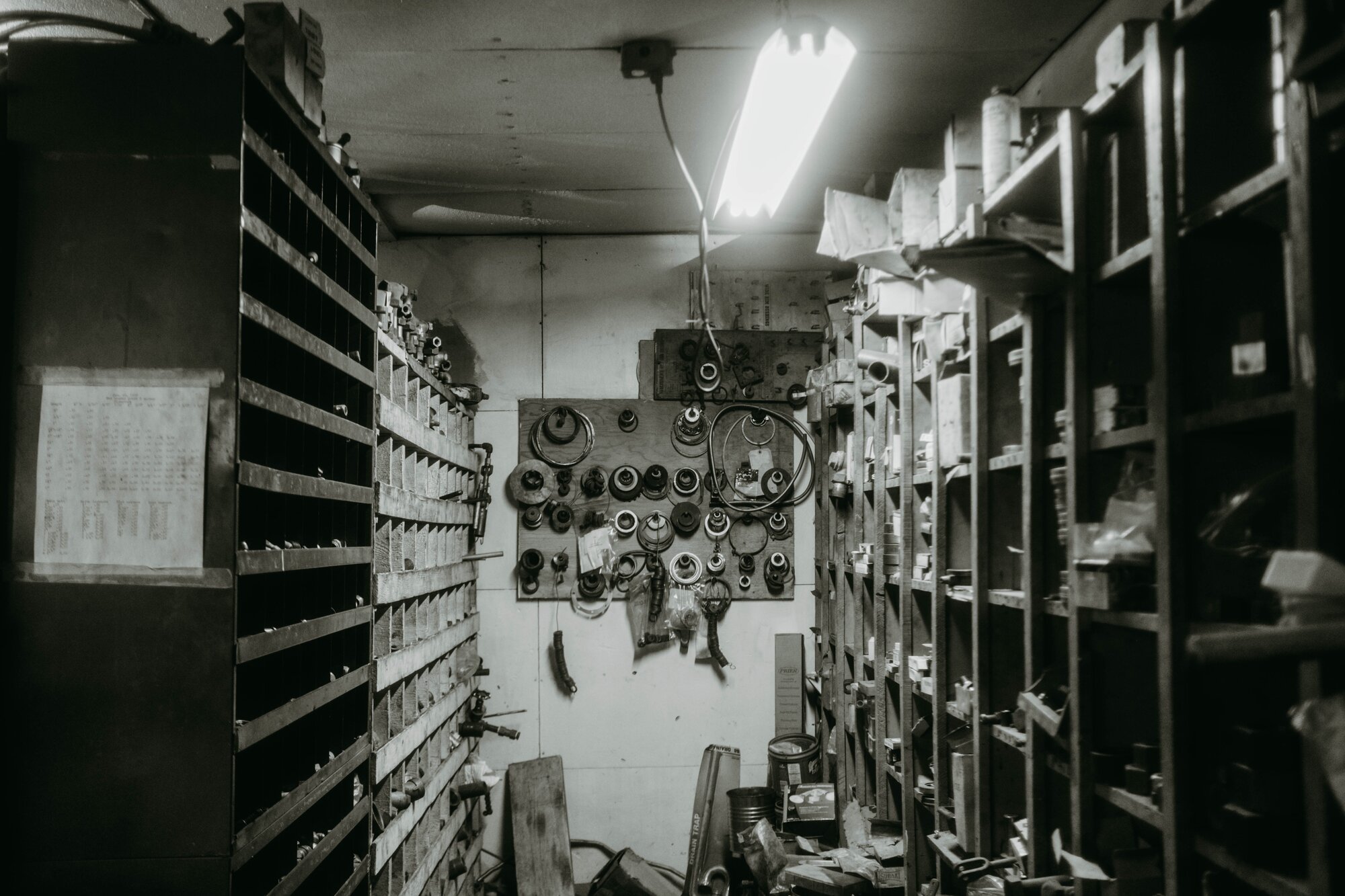
After the men had lunch, a customer came into the shop and asked Marlin if he could make shackles for a Dodge Power Wagon, a vehicle that hasn’t been in production since 1980.
From parts for well drilling companies, to smaller requests for old machines, Marlin gets a lot of orders. Marlin Uhrich said that the steam locomotive shop stays in business because of the versatility in what the workers can manufacture on site.
“There’s a lot of oddball stuff that people don’t make anymore so they ask us to make it for them,” said Mike Kumnick, machinist at the shop.
Steam locomotives were phased out in the United States by the 1980s with the rise of diesel and electric locomotives that were cheaper to run. Today, there are only a few left and those that remain mostly have historical significance or run on tourist lines.
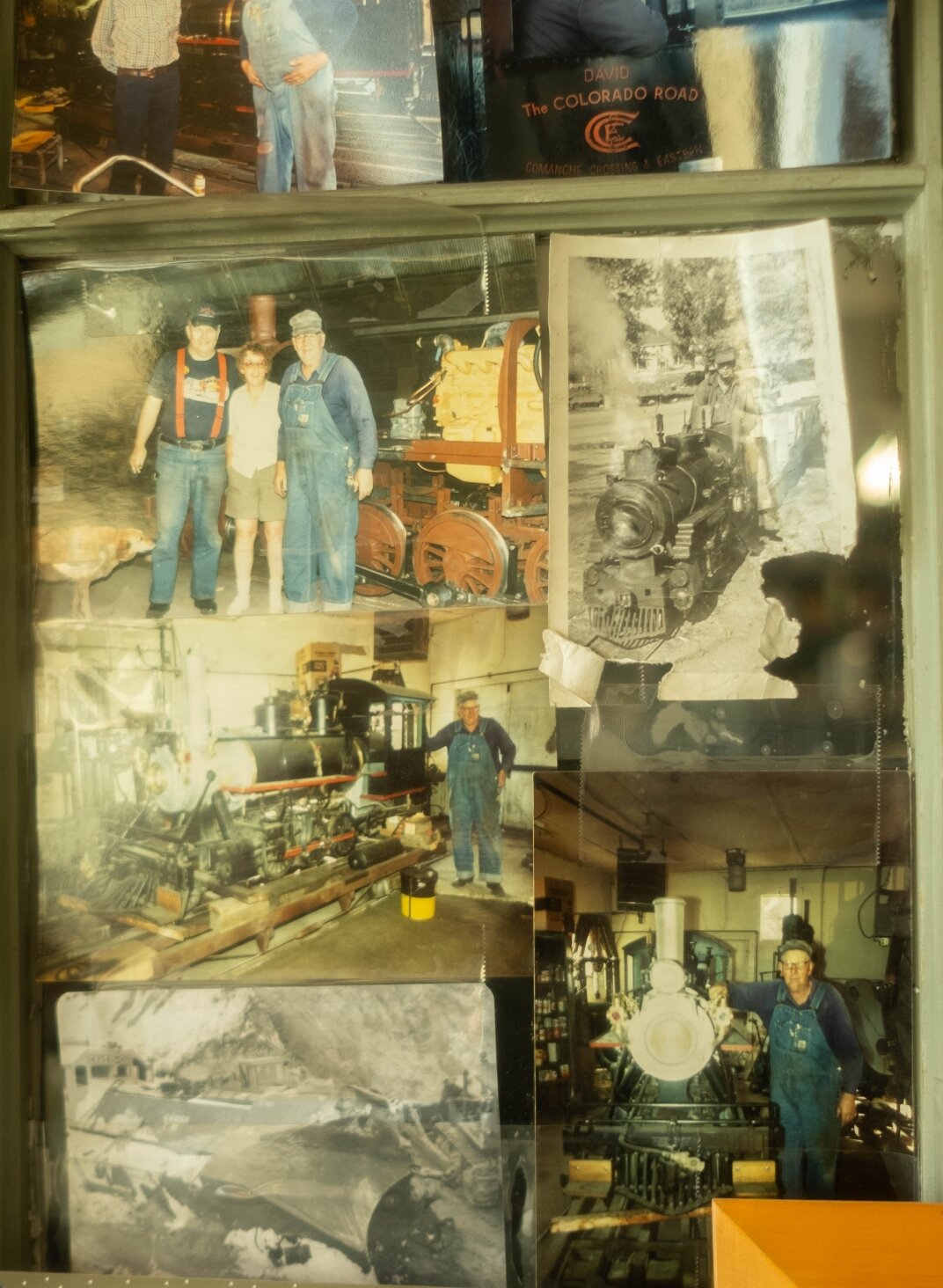
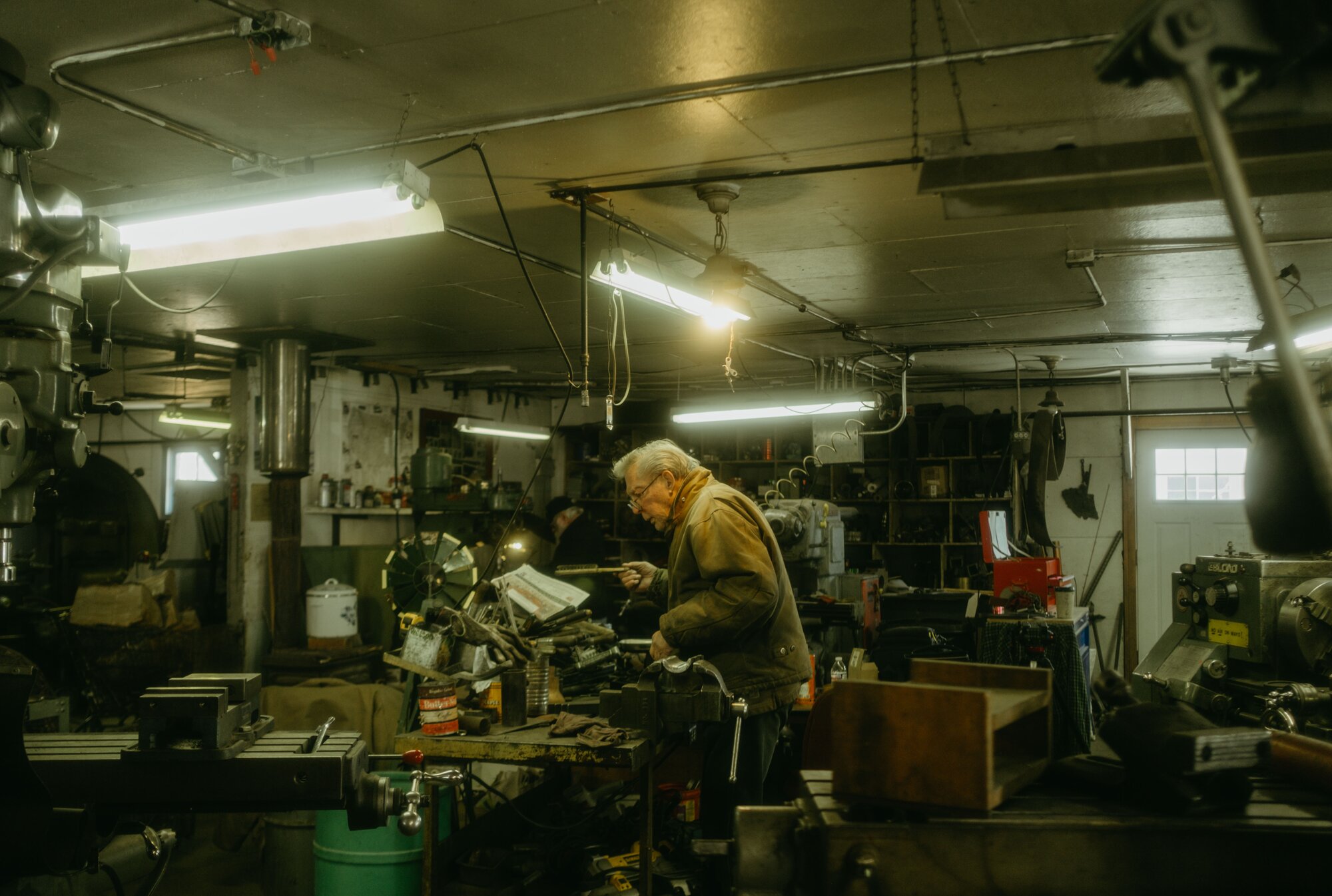
Mike Kumnick working at the shop. He has been with Uhrich Locomotive Works for 15 years and has worked in nearly every post, from being a machinist to working in the foundry.
Photo: Peter Vo, Rocky Mountain PBS
Although full-scale steam locomotives aren’t built at the shop anymore, Uhrich still gets commissions to make smaller working models. He’s currently building a little train for the City of Loveland that will be wheelchair accessible for smaller kids. The locomotive, which he’s been working on for a couple of years, will replace the train that currently runs at North Lake Park in Loveland during the summer.
Uhrich etches the names of everyone who contributed to the build on the back of the seal on every locomotive the team builds. He hopes to have the Loveland train done in April.
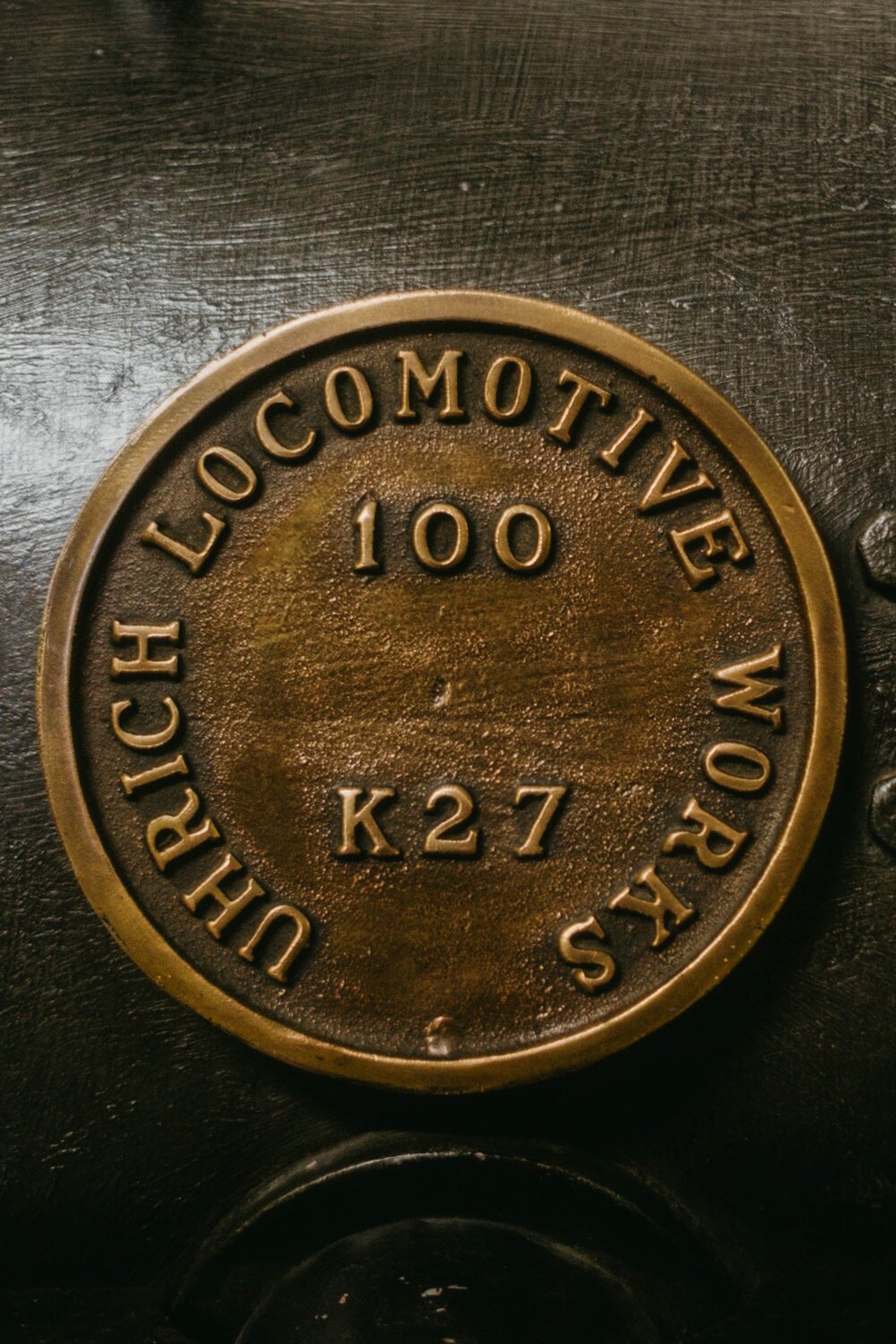
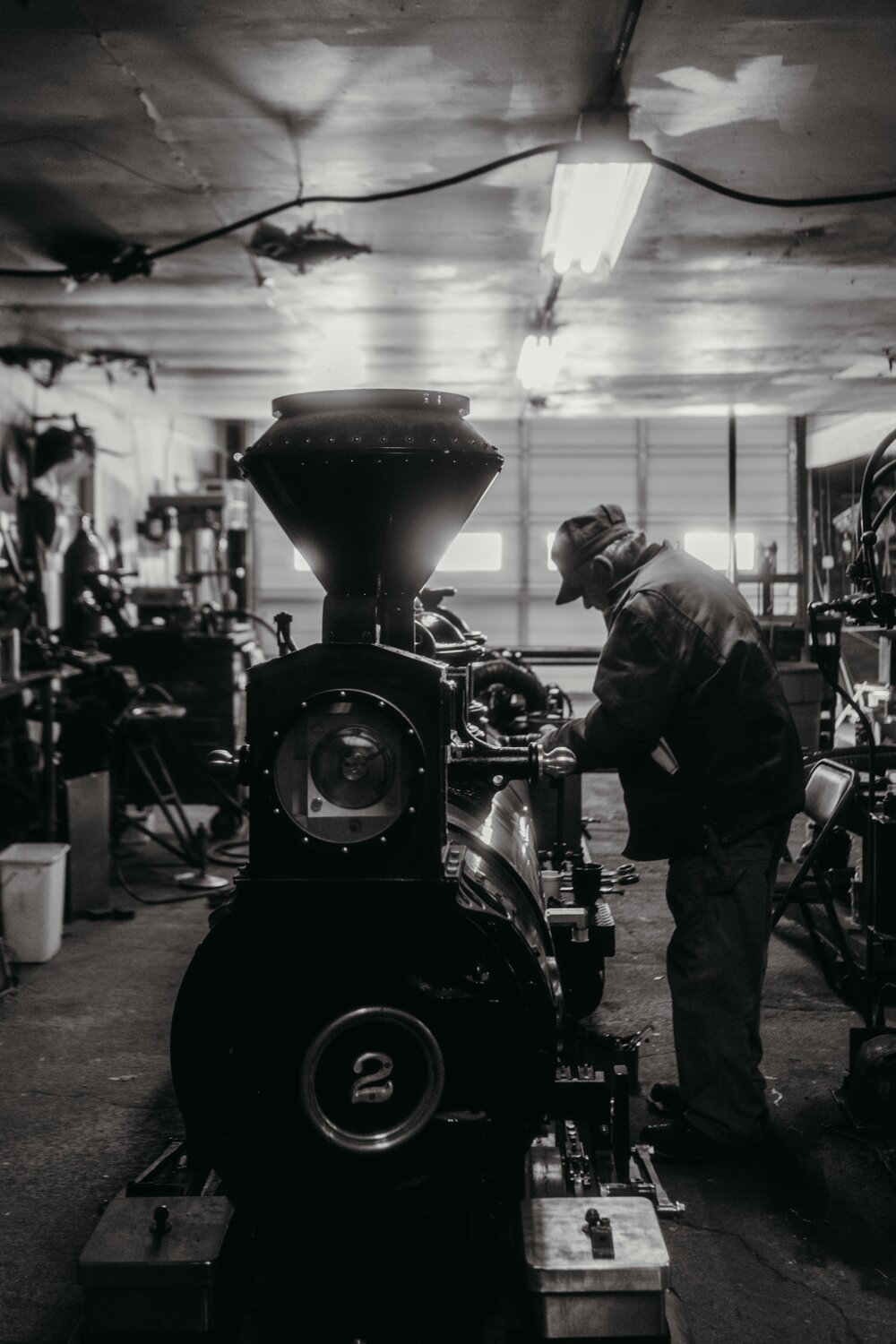
Because Uhrich specializes in making things that are no longer in production, much of the shop equipment and techniques are old.
The newest machine in the shop is a Bridgeport milling machine that was made in the 1960s. Milling machines are used to remove and shape metal in work pieces by using a rotating cutting tool. Some of the machines in the shop date to the 1800s.
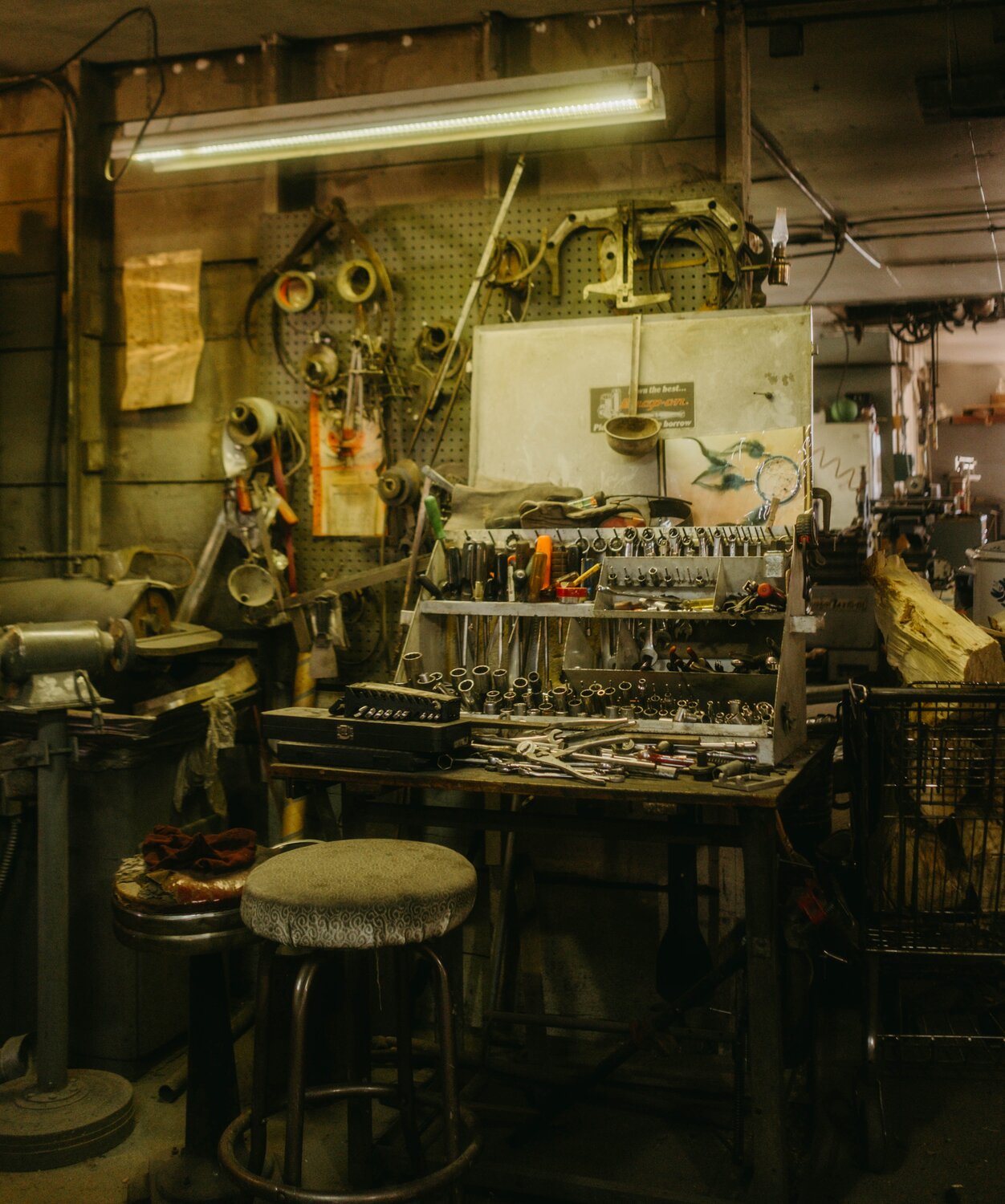
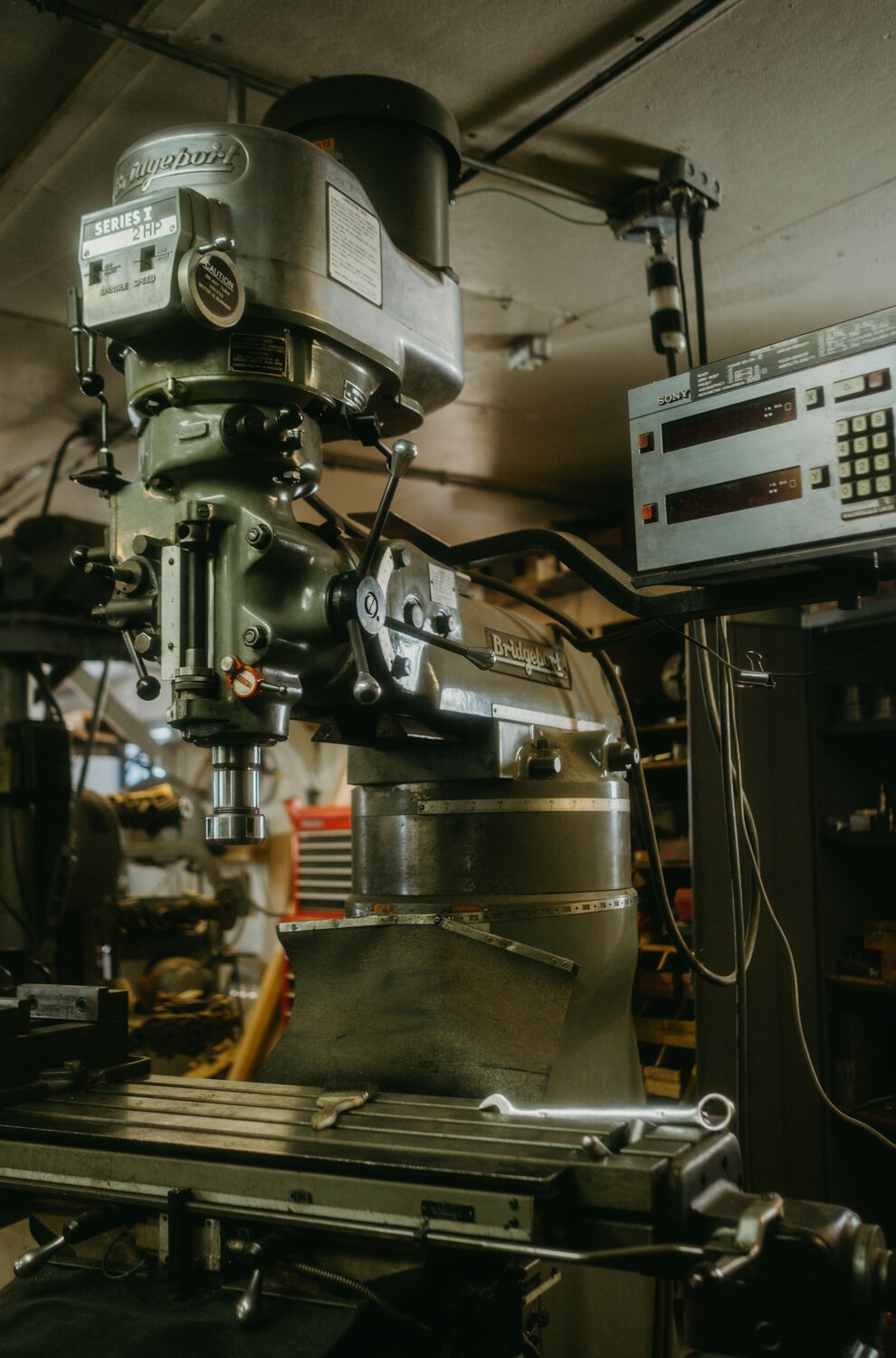
Given the age of the equipment and the four employees —most of them over the age of 75 — who know how to use it, Uhrich said it’s paramount for a younger generation to learn the skills.
“They’re not being trained properly upon any of these types of crafts,” he said of young people. “And right now Western foundries are trying to find workers but they can’t find it because schools and education are not training people to do these things.”
The shop takes in young workers and trains them to be more mechanically inclined.
“Doing this work without computers is a difficult task and the number of people who can [do it] gets fewer everyday,” said Seth Lutz, 25, who began working at the shop after graduating from college a few years ago.
“It’s a good idea to know from experience how to do things myself,” Lutz said.
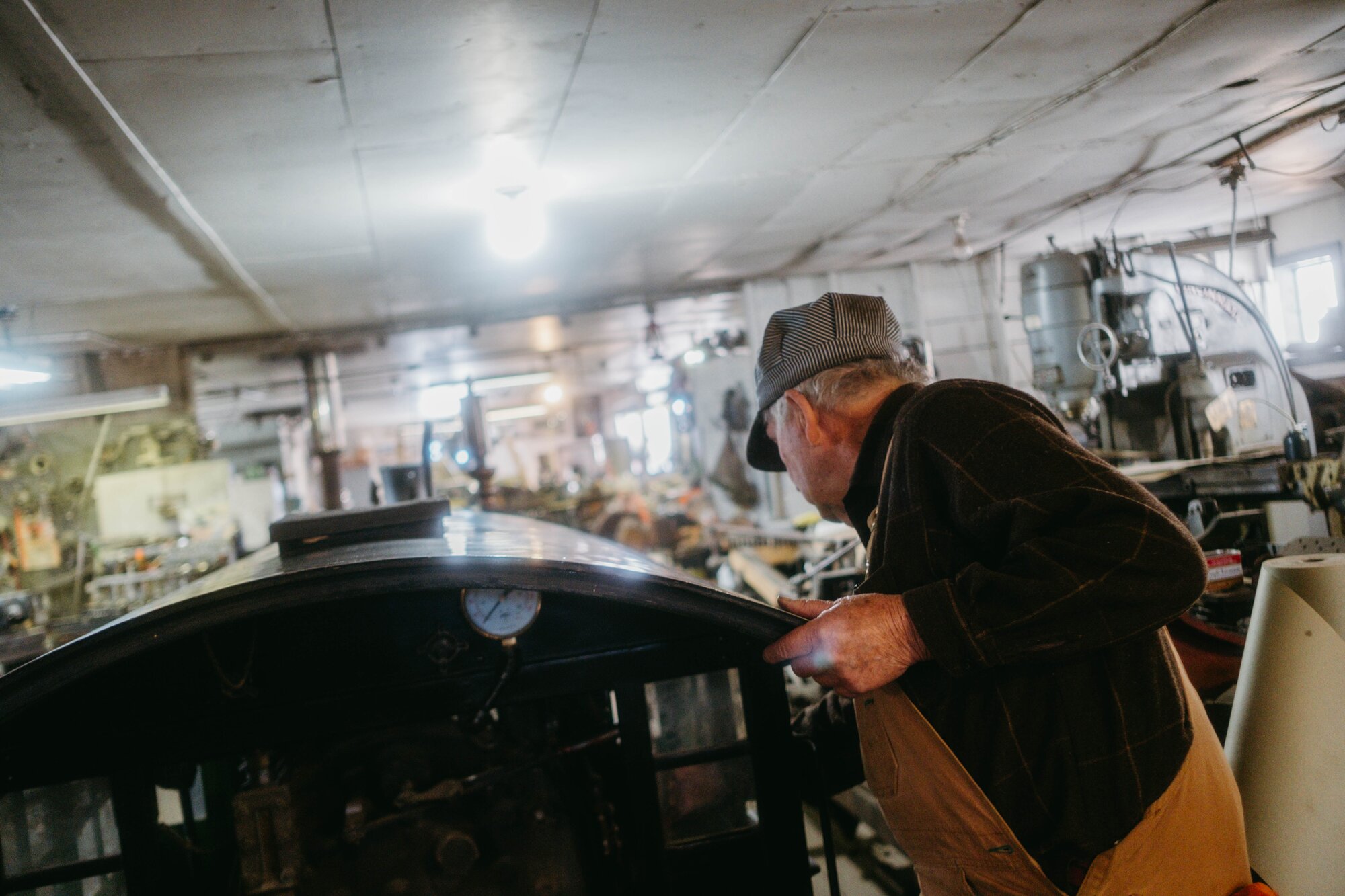
Uhrich pushing the miniature K-27 locomotive.
Photo: Peter Vo, Rocky Mountain PBS
Without the use of modern technology, the processes to make different things at the shop takes months, sometimes even years. Uhrich has been working on a side project, a miniature K-27 locomotive, for 30 years.
“This business teaches you patience, because if you don’t have the patience to do it, you’re never going to get it done,” he said. “The whole point is you keep working on it and get it completed.”
Tom Mehsling retired 14 years ago from the United States Postal Service, but still works at the shop.
“He’s becoming one of the best fabricators I’ve seen around,” Uhrich said of Mehsling.
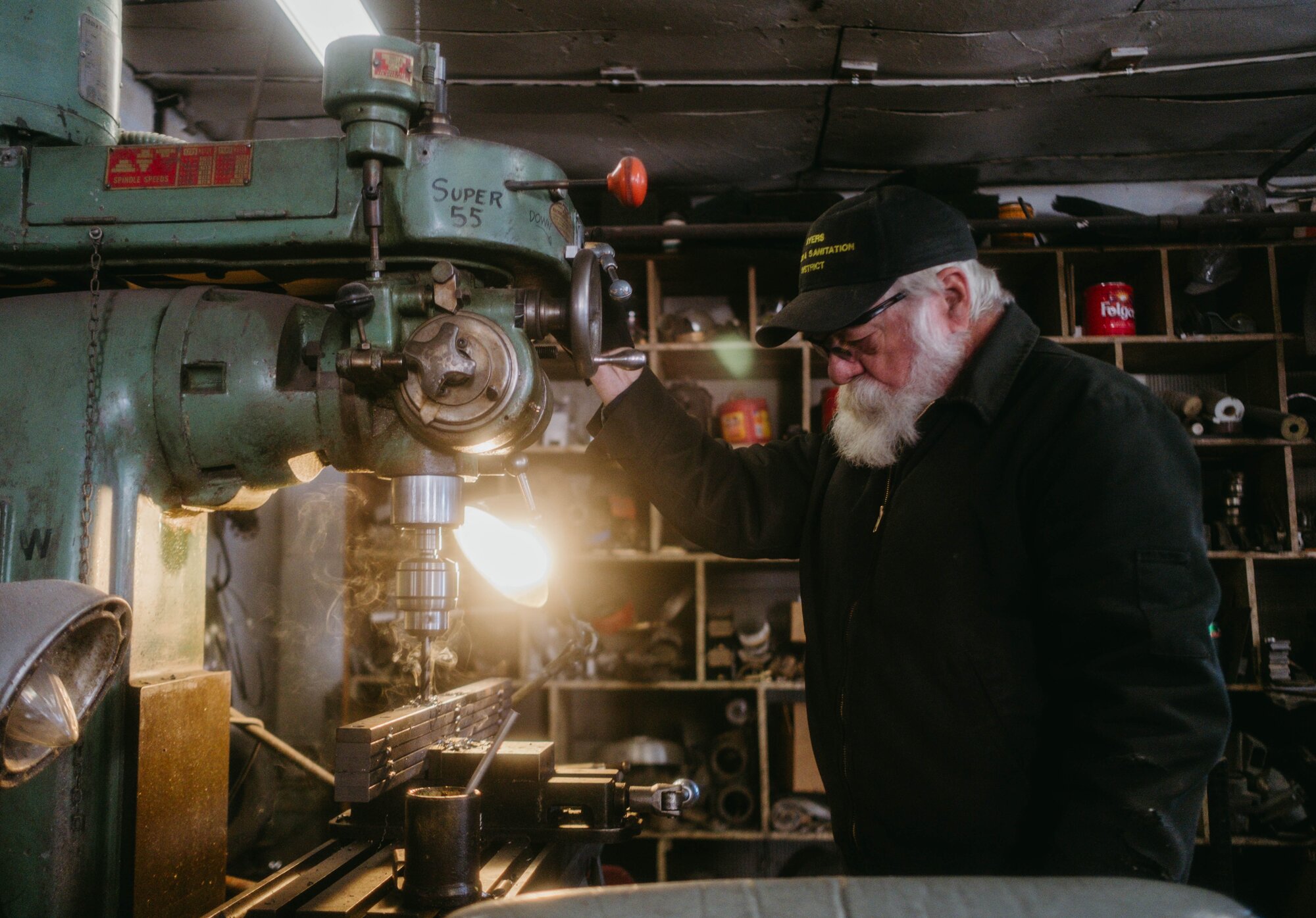
Tom Mehsling working in the shop.
Photo: Peter Vo, Rocky Mountain PBS
Mike Kumnick, 77, has been at Uhrich Locomotive Works for 15 years and has worked in nearly every post, from being a machinist to working in the foundry.
“We got older guys that have come here to work because they get bored in life,” Uhrich said. “You keep them active doing things. I don’t care what it is, just as long as they can use their hands and their mind.”
Uhrich believes that it’s important to work well late into their lives. Continually learning, moving and working on their craft.
Uhrich doesn’t view his work as just a means to an end, he refers to the work done at the shop as a form of expression.
“This is what it comes down to. It is getting something done and it is like a form of art for us as well.”
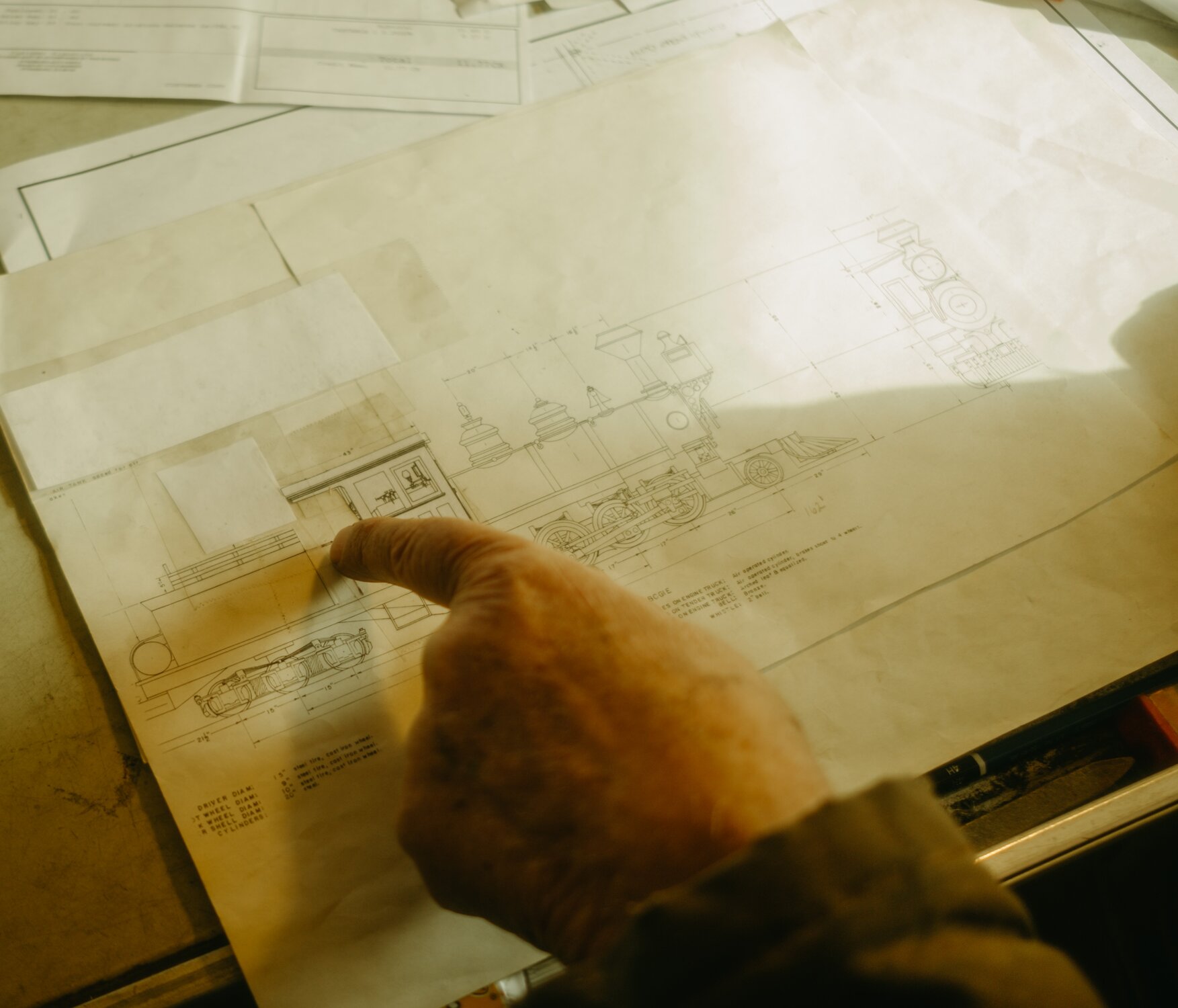
STRASBURG, Colo. — Even with the sun high in the sky on a Tuesday morning, the men at Uhrich Locomotive Works were bundled up in layers of workwear inside the shop. They exhaled frosty breath as they spoke. A wood stove in the center of the room warmed a pot of split pea soup.
Taking a rest from their work, the four welders, machinists and metalworkers at Uhrich Locomotive Works sat around the stove, ladling hot soup into bowls to warm themselves. They shared stories from their long lives as they ate.
The men at the shop use old techniques to keep antiquated technology — steam engines, locomotive parts and the like — relevant.
Marlin Uhrich cuts up ham for split pea soup.
Photo: Peter Vo, Rocky Mountain PBS
Old photographs show Virgil Uhrich, founder of Uhrich Locomotive Works.
Photo: Peter Vo, Rocky Mountain PBS
Behind each Uhrich Locomotive Works seal are the names of people who’ve worked on the project.
Photo: Peter Vo, Rocky Mountain PBS
Uhrich working on the miniature train for the City of Loveland.
Photo: Peter Vo, Rocky Mountain PBS
The youngest machine in the shop is a Bridgeport Milling machine made in the 1960s.
Photo: Peter Vo, Rocky Mountain PBS
Related stories
Peter Vo is a multimedia journalist at Rocky Mountain PBS. Petervo@rmpbs.org